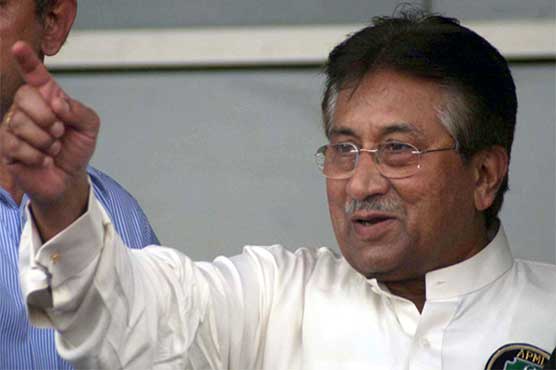Treason case: Judicial commission to be formed to record Musharraf's statement

Ex-president is suffering from serious heart disease, Musharraf's counsel told.
ISLAMABAD (Dunya News) – Former president Pervez Musharraf on Monday has refused to record statement via video link in high treason case against him.
During the proceedings headed by Lahore High Court (LHC) Chief Justice Yawar Ali, Musharraf’s counsel said that his client is not a cowardly man and that he will appear in person to defend himself. Ex-president is suffering from serious heart disease, he told.
Meanwhile, the court has decided to form judicial commission to record Musharraf’s statement
Earlier during the hearing of National Reconciliation Ordinance (NRO) case, Chief Justice of Pakistan (CJP) Mian Saqib Nisar had assured to provide Rangers security to Musharraf on his arrival in Pakistan and also directed authorities concerned to facilitate him with the doctor of his choice.
Pervez Musharraf would not be questioned about assets, the top judge said.
CJP said that former president should come and record his statement and then he is free to move wherever he wants.
Extra-constitutional emergency
The case pertains to the imposition of extra-constitutional emergency in the country on November 3, 2007. In March 2014, he was indicted in the case by the special court comprising judges of three different high courts.
The court also declared Musharraf as proclaimed offender and ordered confiscation of his properties which could not be attached due to the litigation in courts.
Musharraf was banned from leaving Pakistan in March 2013 after he returned to the country on an ill-fated mission to contest elections. The former ruler was barred from taking part in the polls and instead faced a barrage of legal cases.
Sindh High Court had lifted Musharraf’s travel ban, but the federal government appealed the verdict. SC upheld the SHC decision and ordered the government to allow Musharraf to travel.
Afterwards, Musharraf had left for Dubai in March 2013 for what his lawyers said was urgent medical treatment.

